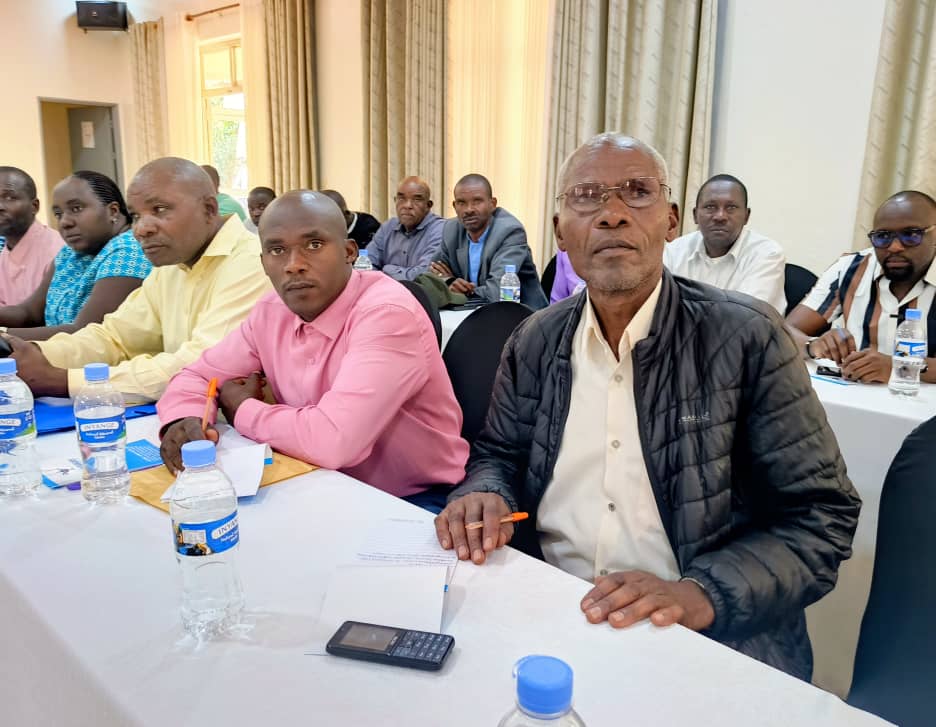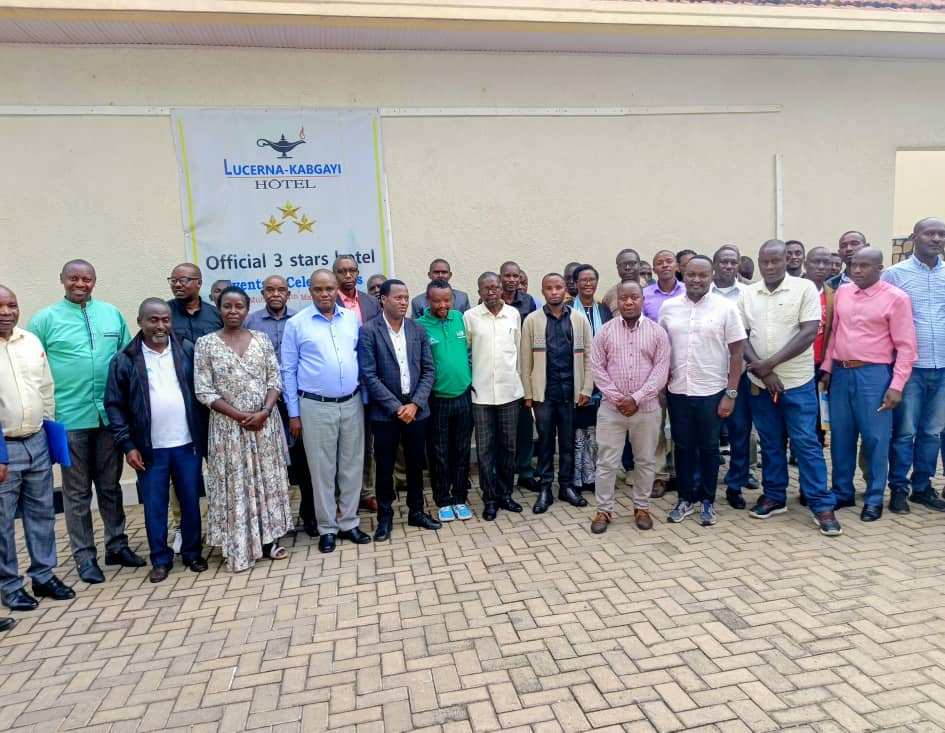
On October 3, 2025, the Lucerna Hotel in Muhanga District, Southern Province, hosted a pivotal meeting aimed at fortifying Rwanda’s cassava seed sector. The gathering, themed “Strengthening Cassava Seed Entrepreneurs’ Organizations and Synergy,” brought together a diverse group of stakeholders united by one goal: to transform cassava seed production into a more structured, coordinated, and resilient enterprise.

The event was convened under the Virus Resistant Cassava for Africa (VIRCA) Project, an initiative designed to equip farmers with improved, disease-resistant cassava varieties. Spearheaded by the Ingabo Farmers’ Syndicate, the project is implemented in collaboration with the Rwanda Agriculture and Animal Resources Development Board (RAB), the Rwanda Inspectorate, Competition and Consumer Protection Authority (RICA), Mennonite Economic Development Associates (MEDA), and other partners.
Participants included cassava seed entrepreneurs, farmer cooperatives, and extension officers, all of whom play a critical role in ensuring the sustainability of Rwanda’s cassava value chain. Discussions revolved around key strategies such as strengthening organizational structures, enhancing coordination, and creating synergies among stakeholders.
Cassava remains one of Rwanda’s staple crops, providing both food and income security for millions. However, challenges such as limited access to quality seed, weak organizational systems, and vulnerability to pests and diseases continue to hinder its full potential. By bringing together actors across the sector, the meeting highlighted the importance of collective action in overcoming these barriers.
The dialogue also emphasized the need for seed entrepreneurs to establish stronger business models that can respond to market demand while ensuring farmers’ access to certified, virus-resistant seed. With the backing of national institutions and international partners, stakeholders expressed optimism that such collaborative efforts would set a new standard in cassava seed systems.
In conclusion, the Muhanga meeting served as more than a forum for exchange—it was a call to action. By strengthening cassava seed entrepreneurs and fostering synergy across the value chain, Rwanda is laying the foundation for a more secure, productive, and competitive cassava sector that will benefit farmers and consumers alike.



